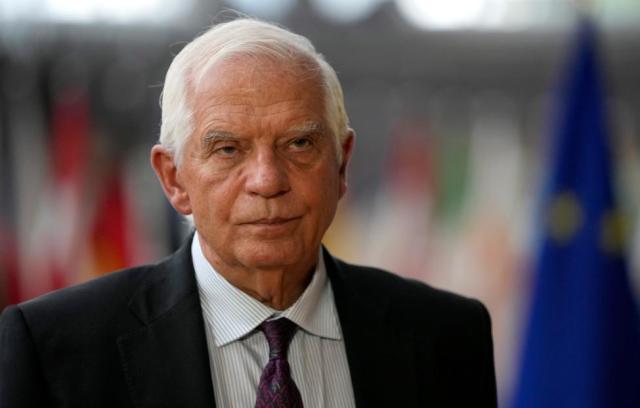So the head of EU diplomacy commented on media reports that the EU is developing a new approach towards the Russian FederationBRUSSELS, November 15.
/tass/. It is "difficult to say" to the head of EU diplomacy, Josep Borrel, what the relations between the European Union and Russia will be after the conflict in Ukraine. He said this on Tuesday at a press conference following a meeting of the defense ministers of the community countries in Brussels.
"We are in the middle of a war. It is difficult to say what kind of relations will be in the future, who knows when and how," he said, commenting on media reports that the EU is developing a new approach towards Russia. At the same time, he confirmed that the EU countries are discussing "new lines" in relations with Russia.
On Monday, the Brussels portal EURActiv reported that the EU states began discussing the future of their relations with Russia, after the EU High Representative for Foreign Affairs and Security Policy Josep Borrel presented a new draft set of principles for cooperation with Moscow. According to him, the nature of the relationship between Brussels and Moscow was determined by five principles of EU policy, but after the start of the military special operation in Ukraine, many of them ceased to operate. According to the portal, on Monday Borrel presented to the Ministers of Foreign Affairs of the EU countries a new draft set of principles designed to become the basis for discussing the long-term relations of the community with the Russian Federation. These principles include "the international isolation of Russia, the introduction and implementation of restrictive measures against Russia and the prevention of their circumvention."
In the new set of principles, it is planned to pay attention to a number of issues that have become relevant after the outbreak of the conflict in Ukraine, the portal claims. According to him, the document also states the need to "support civil society, human rights defenders and independent media inside and outside Russia while simultaneously eliminating increased threats to security and public order in the EU."
On February 24, Russian President Vladimir Putin announced a special military operation in Ukraine in response to a request from the leaders of the Donbass republics for help. After that, the West imposed large-scale sanctions against Russia and increased the supply of weapons and military equipment to Kiev in the amount of tens of billions of dollars.

